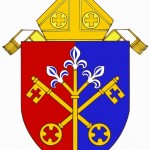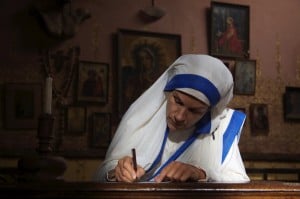 The Catholic Campaign for Human Development has been a flashpoint for controversy in recent years; but I’ve heard some very positive reports recently regarding changes in the organization’s procedures—changes which are intended to prevent problems such as the misallocation of funds to groups whose missions are in conflict with Church teaching.
The Catholic Campaign for Human Development has been a flashpoint for controversy in recent years; but I’ve heard some very positive reports recently regarding changes in the organization’s procedures—changes which are intended to prevent problems such as the misallocation of funds to groups whose missions are in conflict with Church teaching.
WHAT’S REALLY GOING ON THERE TODAY?
In the week leading up to the annual CCHD collection, I’ve seen a lot of dire warnings pop up on Facebook and Twitter and in my email, warning in no uncertain terms against support for an organization which, they fear, sponsors causes which are in opposition to Catholic teaching.
So it was just great when I—in Baltimore to attend the Bishops and Bloggers Meeting and to cover the U.S. Bishops’ Fall General Assembly—had the opportunity to attend the CCHD’s Vigil Mass last Saturday evening in a hotel ballroom, and to see for myself.
 The principal celebrant was the Chair of the CCHD Subcommittee, Bishop Jaime Soto of Sacramento. I’ve enjoyed a meal with him in the past, and I really respect how he mixes piety and good humor, intelligence and grace. He’s a good and holy man.
The principal celebrant was the Chair of the CCHD Subcommittee, Bishop Jaime Soto of Sacramento. I’ve enjoyed a meal with him in the past, and I really respect how he mixes piety and good humor, intelligence and grace. He’s a good and holy man.
Also present was a small cadre of CCHD staffers and subcommittee members. I spotted among them one familiar face—that of Kathleen Eaton, founder and executive director of Birth Choice Health Clinics. Her six stationary clinics and one mobile clinic provide counseling and assistance to women with unplanned pregnancies in California’s Orange, Los Angeles and Napa counties.

I talked with Kathleen, both after Mass and later by phone; and she explained the CCHD’s dramatic turnaround and her goals, as a member of the subcommittee. “Yes,” she admitted, “they had issues. The bishops stepped in and initiated their renewal process, and they have brought in an unbelievable theologian, a pro-life man who teaches at a Catholic seminary, and other known pro-lifers like me, to work with the social justice people at the CCHD and to ensure that the renewal process moves forward.”
CHANGE IN GRANT APPROVAL PROCESS
One important change, Kathleen reported, is that now all grant applications must receive final approval from the local bishop before funding can begin. It is now the bishop of the local diocese, not CCHD staff, who determines whether a particular project should receive funding. Care is taken to ensure that the proposed project is in 100% agreement with the priorities and teachings of the Catholic Church.
Kathleen acknowledged that she was at first surprised by her appointment to the CCHD subcommittee, rather than to the Pro-Life subcommittee. Now, though, she is proud to see the renewal, and the good things that are happening. Her prayer, she said, is that the attacks against the organization—especially those which are totally unfounded—will cease, and the CCHD’s mission will be embraced by Catholics across America. Kathleen realizes that there is a benefit to having a life-long pro-lifer engaging social justice experts at CCHD—and a social justice advocate serving on the pro-life subcommittee. She believes, in fact, that at the USCCB the two committees need to come together, to work together in defense all life from conception to natural death.
“One final thing,” she said. “A Church divided, a family divided, even my own ministry divided—will not succeed. If we divide ourselves, Satan will come in and use this…. We face enough attacks in the world and the culture, and we need to stand united to help the poor, the unemployed, and the needy in our midst.”
CHANGES IN STAFFING
There have been staff changes at the CCHD, as well.
One appointment which was hailed by pro-lifers when it was announced in September 2012 was Dr. Jonathan Reyes, who was selected to lead the Justice and Peace office of the USCCB, which oversees the CCHD. Dr. Reyes has been in the forefront at a number of highly respected and orthodox Catholic organizations: He was vice president at Christendom College, then was co-founder and first president of the Augustine Institute, a Catholic graduate school that combines education in theology, Scripture and history with practical formation in pedagogy and leadership. He was vice president for campus ministry and leadership formation of the Fellowship of Catholic University Students (FOCUS) in Denver. Among his many contributions to the Church’s social mission, Reyes also founded Christ in the City, a national volunteer and formation program for college students. He also oversaw the creation of Regina Caeli Catholic Counseling Services and Lighthouse Women’s Care Center and completed the Guadalupe Community Assistance Center in Greeley, Colorado. Most recently, Reyes has led Catholic Charities in the Archdiocese of Denver.
HOPEFUL DOCUMENT ON THE ECONOMY
Kathleen cited the document on “The Hope of the Gospel in a Wounded Economy” as an effort on the part of the bishops to address the critical need to help those in poverty. Although the first draft of the letter was not approved by the General Assembly, Kathleen was moved by it and expected that a shorter, more succinct version would be approved at a future date.
AN INCREASE, NOT A DECREASE IN SUPPORT
Kathleen Eaton added a note: In spite of the attacks against CCHD, 2011 showed an increase across the board in support for the capital campaign. She saw this as evidence that Catholics do believe in the pastoral work and the care offered through CCHD.
The Catholic Campaign for Human Development, on their webpage, offered an overview of changes effected during the renewal process. “What’s New? And What’s Not?” (below) explains how the CCHD continues its mission to help those in need.
CURRENT PROJECTS WHICH REQUIRE YOUR SUPPORT
On November 13, Bishop Soto announced two major initiatives which CCHD has undertaken: First, they have approved a grant of half a million dollars to assist victims of Hurricane Sandy along the East Coast of the United States; and second, they also launched a national strategic grant program to address poverty-related issues across the country.
The grant to Hurricane Sandy victims will support “people coming together to reorganize the fabric of their communities” and to “build a resilient support system for those most vulnerable to natural calamities, the poor,” Bishop Soto said.
The national strategic grant program is an “innovative approach to poverty” that will complement CCHD’s regular, diocesan-oriented support to community initiatives across the country. The CCHD subcommittee approved more than $2 million over the next few years to address systemic causes of poverty and empower communities to implement lasting solutions.
“Before our eyes today, immigrants are exploited, the criminal justice system sucks our youth into its steely and broken logic, labor is weakened, families are torn apart by poverty and children bear the consequences, women without hope are tempted to abortion, homes are foreclosed, pensions robbed, the poor are denied access to credit and our natural resources are exploited. This is real poverty,” Bishop Soto said on the need for the new national focus.
YOU’LL HAVE AN OPPORTUNITY TO HELP THIS WEEKEND
In parishes across America, the Sunday before Thanksgiving is the traditional date for the CCHD collection. Chances are, you’ve been encouraged by some to withhold your contribution. May I offer my own call to dig deep, to reach into your pockets and give with enthusiasm. The need is great, and as Catholics, we are Christ’s hands and feet. We must respond.
CCHD: What’s New? And What’s Not?
What will be new as a result of the CCHD Review and Renewal?
1. New CCHD grant agreement, application and other materials that specify more clearly what CCHD can and cannot support, linked to stronger review and monitoring.
2. New language throughout that makes clear CCHD is not a secular foundation, but a work of the Catholic Church, outlining our mission, our principles and our priorities.
3. A priority for Catholic participation in funded projects… the involvement of Catholic parishes, institutions will be a plus in considering applications. The outdated prohibition on funding ecclesiastical entities is eliminated.
4. A more comprehensive, more realistic definition of poverty including the service of priests and religious living and working in poor communities.
5. A continued requirement that poor people have a major role in decision‐making. CCHD will consider other measures of the participation of those who are poor in addition to board membership.
6. Larger grant amounts ($25,000 to $75,000) to match the needs of groups and reduce the number of grants to be monitored.
7. A new strategic grants program which uses a portion of CCHD funds to focus on neglected issues and USCCB priorities as they relate to poverty.
8. New structures to assist CCHD in applying its prohibitions on funding groups which act in conflict with Catholic social and moral teaching … a staff position on CCHD mission and identity, a consulting relationship with a moral theologian and a CCHD Review Board.
9. CCHD will strengthen the understanding that CCHD is important not just for what it does, but for how it demonstrates who we are and what we believe as Catholics.
What is not new?
1. CCHD’s commitment to and priority for the poor.
2. CCHD’s emphasis on self‐help, bottom‐up approaches and the principle of participation.
3. CCHD’s focus on the pursuit of justice, addressing the causes of poverty, pursuing “the institutional path . . . of charity” (Benedict XVI, Caritas in Veritate, 7).
4. CCHD’s policy that no group that acts in conflict with Catholic social and moral teaching can receive CCHD funds.
5. CCHD’s requirement that the local bishop must approve before any group can be funded in a diocese.
6. CCHD’s efforts to help carry out the mission of Jesus Christ to “to bring good news to the poor, liberty to captives, new sight to the blind and to set the downtrodden free” (Luke 4:18).











